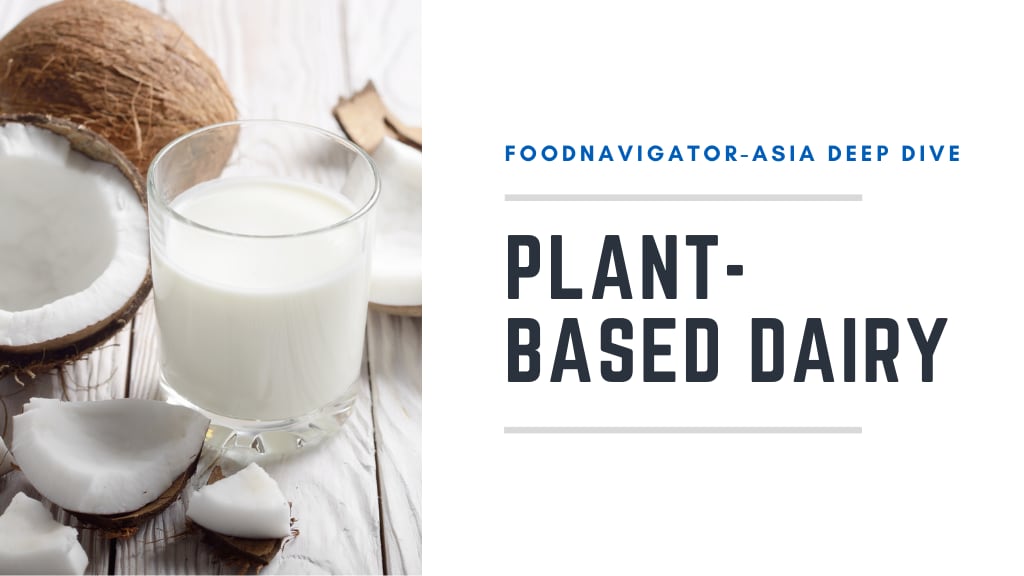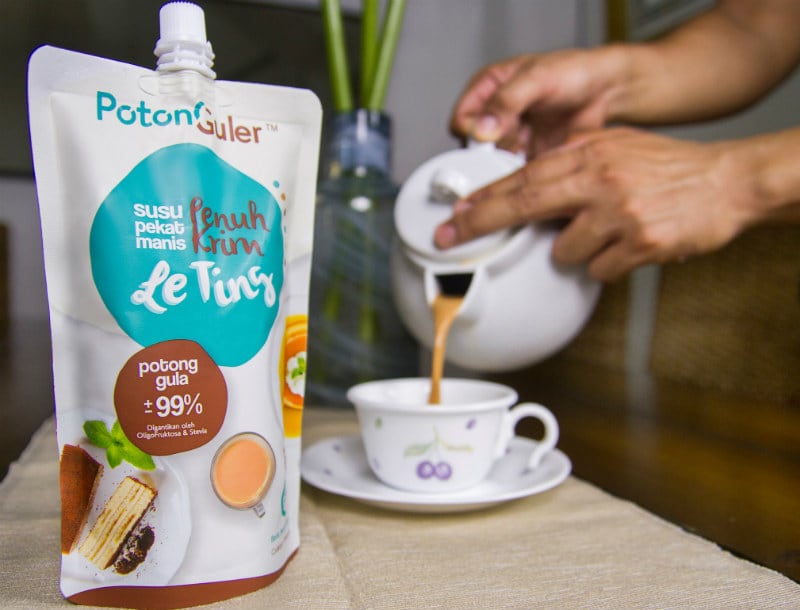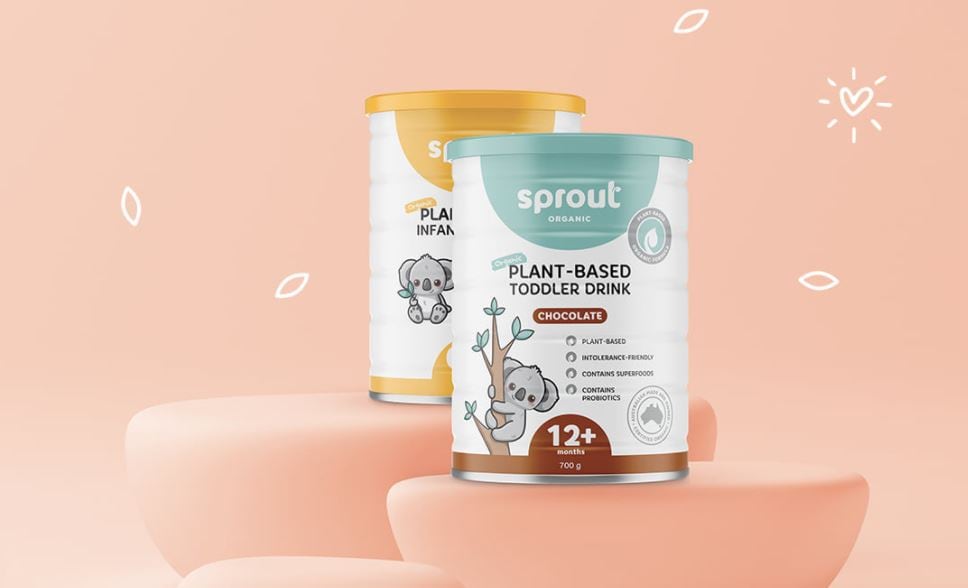In this edition of the FNA Deep Dive, we take a closer look at this rapidly growing and evolving industry in APAC to find out more about how this sector is emerging as one of the most diverse globally.
According to data from research consultancy Transparency Market Research, the dairy alternative market in APAC is expected to hit a value of US$19.8bn by 2031, growing at a CAGR of 10.7%. Experts in general believe that growth in the region is largely being driven by consumer health concerns, as opposed to sustainability concerns which are of greater importance in many other regions in the west.
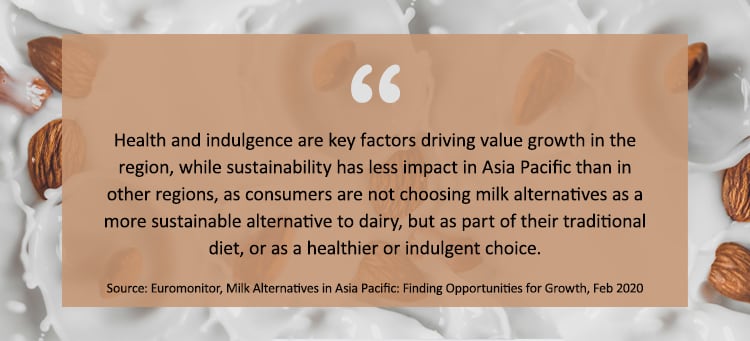
Milk alternatives made from soy, almond and oat are amongst the most common, and can be considered pioneering products for the dairy alternative movement, but in recent years the plant-based dairy industry, particularly in APAC, has gotten increasingly more creative with ingredient sources and product formats, leading to a broad range of products now being available in the region.
One of these is milk made from peas – Malaysia-based Snappea lays claim to being the first pea-based milk in the region and its Founder and Director Justin Chan believes that much more growth still lies ahead for the plant-based dairy category.
“The plant-based milk industry in APAC is really just starting up, I’d say we’re just at the 5% to 10% stage right now, and I foresee double digit growth for the market in the next five to 10 years,” Chan told FoodNavigator-Asia.
“There is so much potential for plant-based milk here – I have found that in a plant-based diet it is easier to replace the meat component with things like tofu and tempeh, but not so much the milk component because milk is used [so ubiquitously] in our diets, from coffee to cereal.
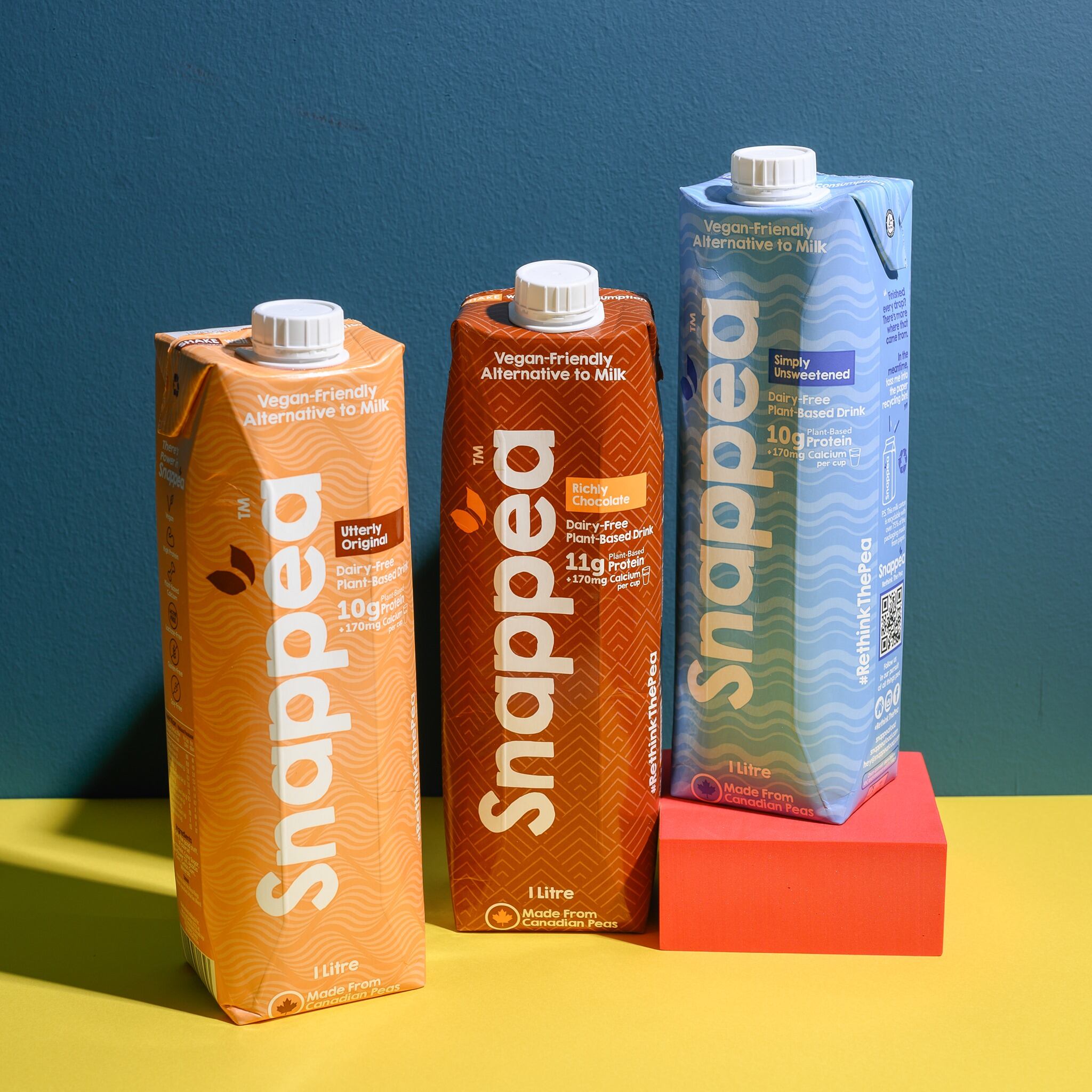
“Pea-based milk has a range of benefits that help it to stand apart from the competition - I understand there are other plant-based milks in the market, but these are generally nutritionally inferior to regular cow’s milk, e.g. one cup of almond milk only has 1g of protein which is eight times less than cow’s milk, whereas a cup of our pea-based milk has 10g to 11g of protein, which is 20% higher than cow’s milk and about 10 times more than almond milk.”
Chan also maintained that peas are a far more sustainable option than any other crop to opt for if sustainability is a main concern as it ‘consumes the least amount of water out there’ to cultivate and harvest compared to any others, especially nuts.
“Take almond milk for example – this is actually a very water-intensive crop, and to harvest just one almond requires four litres of water to harvest, so it is actually not the most sustainable option to create milks using almonds or nuts in general,” he said.
That said, he added that health reasons are still the main driver behind the growth of both pea-based milk in particular and plant-based dairy in general in the region, especially with studies having shown that some 90% of the Asian population is lactose intolerant to various extents.
“People want to drink something milky which is not necessarily dairy, they just want the milky taste without the dairy part and this which opens up a huge market where consumers just want a better alternative,” he said.
Watch the video below to find out more:
Another world-first unique plant-based dairy offering that has been created in Asia is a microalgae-based milk alternative made by Singapore-based Sophie’s Bionutrients.
This product also boasts health and nutritional benefits above that of regular plant-based milks such as complete essential amino acids and various types of vitamin B, including those not found in many plant-based proteins.
“This milk alternative basically has all the nutritional benefits that microalgae has to offer, and because this is made via fermentation in a bio-reactor we are able to control the external conditions [to ensure food safety],” Sophie’s Bionutrients’ Founder and CEO Eugene Wang told us.
“Every type of microalgae can actually also naturally offer different types of proteins, minerals and nutrients, so consumers would have choices depending on what nutritional benefits they are looking for.
“Growing in bio-reactors is also the most sustainable way in the world to grow foods, so we definitely also have an advantage over other plants.”
Also leading the pack in terms of sustainability is Singapore-based WhatIF Foods with its Bambara groundnut (BamNut) milk.
According to WhatIF Foods Founder and CEO Christoph Langwallner, BamNuts have an affinity for poor soil and water conditions and are able to grow even in the harshest of environments whilst simultaneously fixing nitrogen around its roots to improve soil and microbiome conditions.
“Places like Indonesia and Malaysia are prime targets for BamNut planting as these places have a lot of land that has been degraded, especially due to palm oil planting,” Langwallner said.
“As for the BamNut milk itself, it is very strong in terms of the organoleptic sensory experiences that consumers seek, e.g. its colour is even whiter than that of dairy whereas other plant-based milks like almond have a brownish hue.
“Its texture is extremely creamy and similar to that of fresh milk, plus we are also able to tailor the taste of the milk to be more dairy-like, more nutty, more greeny. It is also very micronutrient dense with a complete protein profile comprising all nine essential amino acids.”
WhatIF Foods’ Bambara groundnut milk will be hitting the market later this year.
Innovative formats
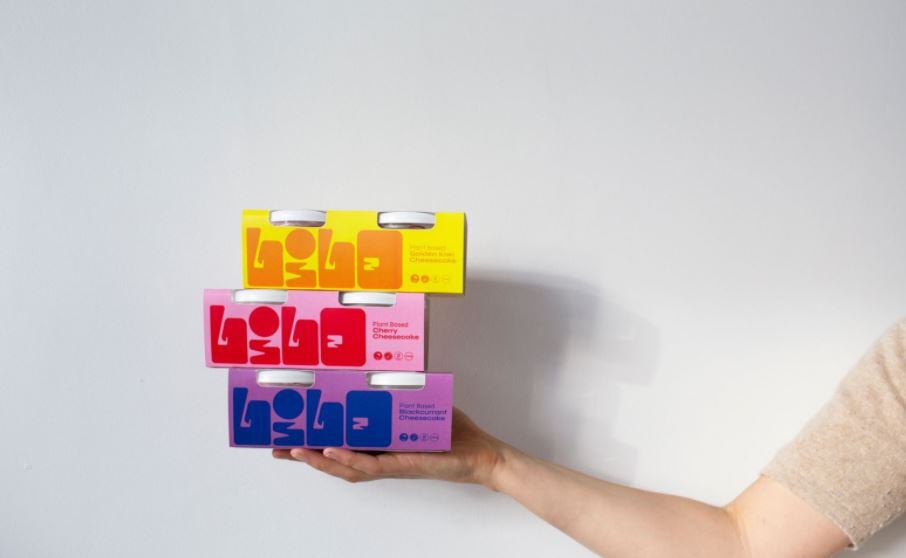
Innovation in the APAC plant-based industry has been moving forward at a rapid pace not only for the milk alternative sector, but also in other formats such as spreads as desserts as firms move to capture consumer attention and repeat purchases.
Desserts in particular have seen many new inventions – also coming soon later this year is a range of plant-based cheesecakes by New Zealand firm LILO Desserts, which believes that these are a way to bridge the gap between healthy and convenient foods for consumers.
“We see people wanting to eat healthier, but also feeling time pressured with their busy lifestyles. This has no doubt build up demand for healthy ready-to-eat products,” LILO Desserts Co-Founder and General Manager of Sales and Marketing Cleo Gilmour told us.
“People are also looking for the ‘feel-good’ indulgence, so we developed a plant-based cheesecake made with a gluten free biscuit base, a dairy-free cream cheese layer and fruit topping using unwanted or ‘ugly’ fruits from fruit orchards that are not suitable for retail and would otherwise be thrown away.”
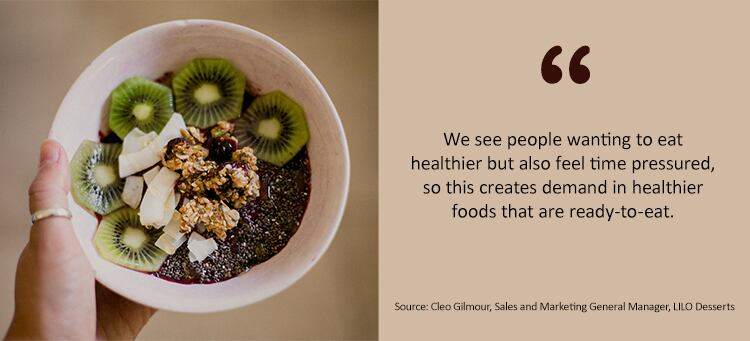
Over in China, growth is also expected to be exponential with this nation predicted to dominate the APAC plant-based market and cross US$10.7bn by 2031, according to analysts.
“Urbanites in Tier 1 cities especially are looking for novel options that are also healthy, and plant-based products tick those boxes,” Christiana Zhu, Founder of Marvelous Foods which owns China’s first plant-based coconut yoghurt brand Yeyo told us.
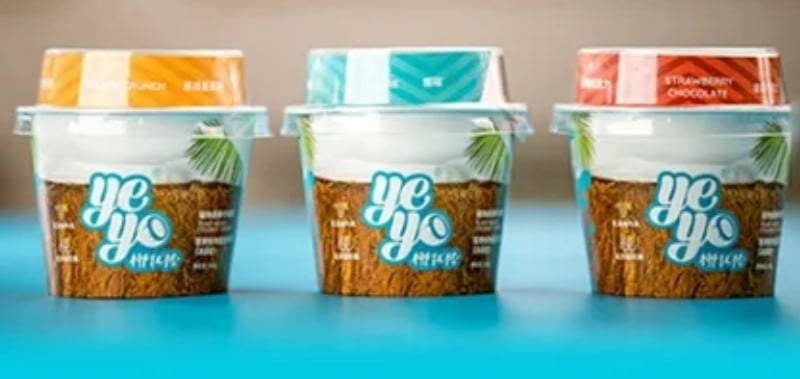
“Our first products are yoghurt and granola products which are designed to be more indulgent forms of yoghurt and more premium than the drinking yoghurt product formats which Chinese consumers are used to as this is what these urbanites are seeking now.”
Yeyo recently launched three products onto China’s Tmall, emerging as the first-ever plant-based coconut yogurt flagship store on the leading e-commerce platform.
Apart from desserts, another plant-based category that has been quietly but steadily growing in Asia is that of plant-based spreads. According to margarine and spread firm Upfield which produces brands including Flora, Blue Band, Violife and ProActiv, there is greater acceptability and penetration of plant-based spreads compared to milk products in Asia, particularly in lower-income countries.
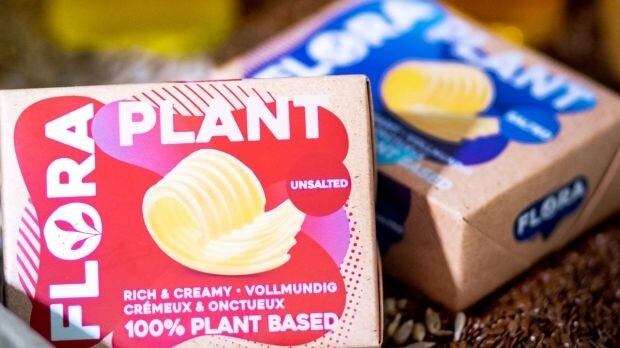
“Plant-based spreads like Blue Band are affordable, have been in the markets longer and have built strong brand loyalty over the years,” Upfield President Africa, Middle East and Asia-Pacific Tim Verbeek said.
“There has been a surge in the demand for plant-based dairy and meat alternatives during the current pandemic, which has helped accelerate the growth of the industry.
“What we need in the plant-based industry is more innovative products to meet the taste, quality, and performance needs of consumers in all spreading, cooking, and baking occasions; and we need to do this at a price point that works for our consumers.
“Plant-based dairy especially is an important focus area for innovation as there are many dairy categories to explore including spreads, cheese, cream, yoghurt, and milk.”
Within the plant-based oil and spreads sector, he added there is potential for less explored vegetable oils such as shea olein being introduced into plant-based products to replace ingredients like palm oil.
In APAC, Upfield is best known for its Blue Band product, better-known as Planta in Malaysia or Astra in Sri Lanka.
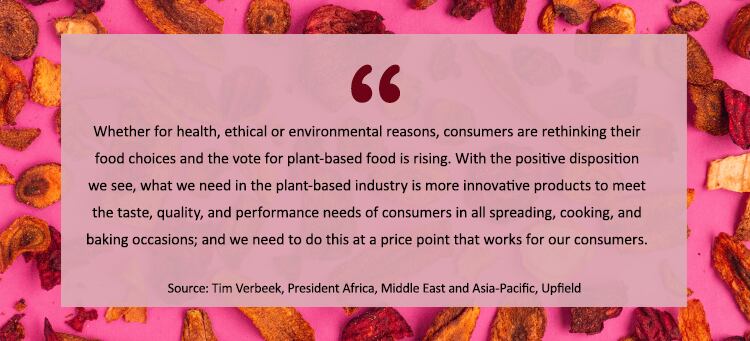
Innovation is not limited to desserts and spreads though – other formats such as smoothies and protein bars are also popping up, such as by India’s Axia Foods which focuses on making products from a mix of almond, cashew, coconut and oat, but avoiding soy.
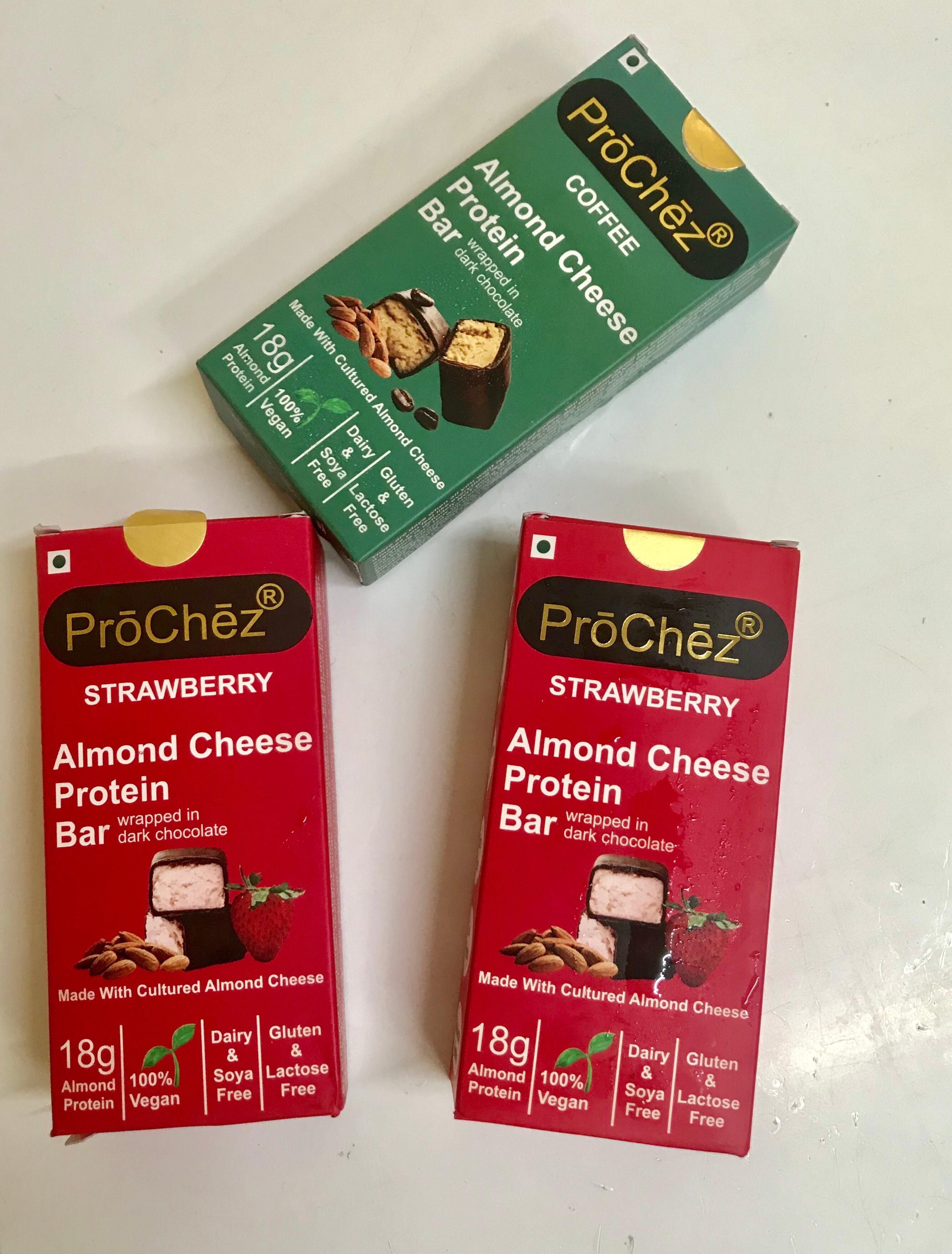
“People are adopting plant-based diets due to its health benefits and positive impact on climate change, especially with the ongoing pandemic issues,” said the firm’s Founder and CEO Jasmin K Shaikh.
“When it comes to plant-based diet, consumers are looking for a great eating experience while caring for a better planet and better health.”
Big firm participation
Multinational firms have also hopped on the plant-based dairy trend, with F&B giant Nestle Malaysia for example having recently launched a range of plant-based drinks under the umbrella of popular brands MILO and Nescafe.
“We innovated two of Malaysia's all-time favourites MILO and NESCAFÉ drinks to come up with their respective dairy-free versions to support our consumers on their plant based journey towards a more sustainable – yet tasty – future,” Nestle Malaysia CEO Juan Aranols told us via an email statement.
“We have also made our products available in leading supermarkets and ecommerce sites at affordable prices, making them accessible to a larger consumer segment.”
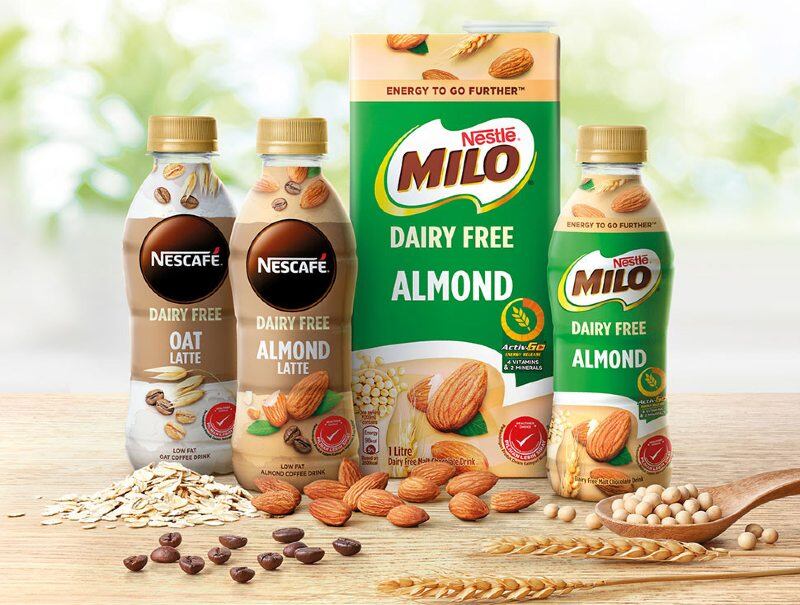
There are three products in the new range - MILO Dairy Free Almond, NESCAFE Dairy Free Almond Latte and NESCAFE Dairy Free Oat Latte which use plant-based ingredients such as almond, soy, oat and pea to replace dairy. All are priced around RM3.50 (US$0.84) per 225ml bottle.
Oat milk and almond milk were selected by Nestle Malaysia for its initial launch as these were ‘some of the top preferred plant based variants by consumers’.
“This very first Nestle Dairy Free drinks range is to complement our product innovation drive to deliver plant based food that is tasty, nutritious and also environment-friendly - While these products cater to largely plant based consumers, [they] are suitable for all, including those with lactose intolerance,” he added.
The drink are produced in Nestle’s Sri Muda Factory and not the Plant-Based Meal Solutions facility which looks at products such as the firm’s plant-based meat brand Harvest Gourmet.
Another big firm, Sanitarium Health Food Company, believes that plant-based products have an advantage over dairy milks in some APAC countries because these are often sold in long-life UHT formats and don’t require refrigeration until they are opened.
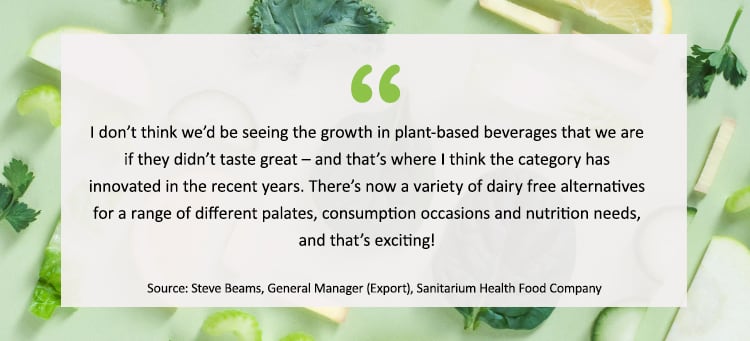
That said, the firm’s General Manager (Export) Steve Beams told us that taste and variety are also major drivers in the region that cannot be ignored.
“I don’t think we’d be seeing the growth in plant-based beverages that we are if they didn’t taste great, and that’s where I think the category has innovated in the recent years. There’s now a variety of plant milk for a range of different palates, consumption occasions and nutrition needs, and that’s exciting,” said Beams.
“APAC consumers are also increasingly looking at the environmental impact of their food choices which we believe will only accelerate the adoption of plant-based beverages in the region.”
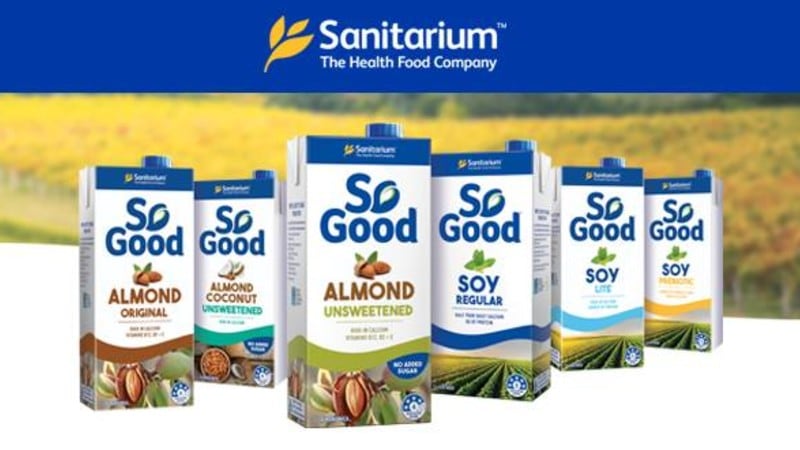
Sanitarium is best-known in the plant-based space for the So Good range of plant-based milks, covering almond, soy, coconut and cashew-based milks, and the firm also recently developed plant-based barista milk options to tap into the café culture, which comprises of almond, soy and oat milks.
Beams revealed that the almond milk remains the best-performer in the So Good range, and that as a whole So Good is the top-selling plant-based beverage brand in Australia and New Zealand. That said, he also highlighted that the use of new plant-based sources such as walnut and pistachios are a strong area of potential opportunity for growth.
So Good is also available in APAC including Malaysia, Thailand, Indonesia and the Philippines, and South East Asia is currently a strategic priority for the firm.


